Voting rights face more threats today than Jim Crow era, advocate says
Civil rights leaders reflect on the pivotal achievement of enfranchisement for Black Americans and the challenges, both new and old, that threaten the fundamental right to vote.
As the United States marks 58 years since the landmark Voting Rights Act became law, civil rights leaders are reflecting on the pivotal achievement of enfranchisement for Black Americans and the challenges, both new and old, that threaten the fundamental right to vote.
“It comes at a time when voting rights are more under attack now than during the Jim Crow era,” said Cliff Albright, co-founder of Black Voters Matter. The voting rights advocate lamented that Republican politicians have created “newer forms” to “suppress votes and intimidate voters.”
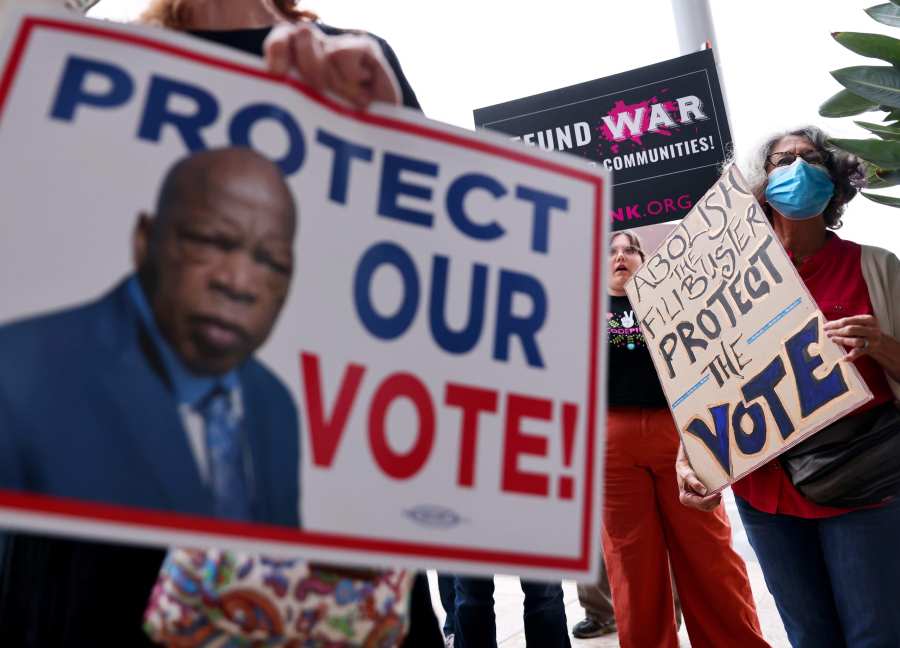
President Lyndon B. Johnson signed the Voting Rights Act of 1965 into law flanked by Dr. Martin Luther King Jr. and other civil rights leaders who had for years led marches and protests for equal access to the ballot box. The legislation was designed to enforce the 15th Amendment and remove barriers — literacy tests, poll taxes and other intimidation tactics — that prevented many Black Americans from voting.
While the law was hailed as a pivotal turn in the civil rights movement and, more broadly, for the freedoms of Black Americans, activists say current and future generations of Black voters will have to conquer new battles to protect the sacred right to vote.
“We’re at a moment now where we’re commemorating the Voting Rights Act, but just a few weeks ago, we also commemorated the 10th anniversary of the Shelby decision,” Albright said.
In the 2013 case, Shelby County v. Holder, the Supreme Court eliminated the pre-clearance provision of the VRA that required states that historically discriminated against Black voters to seek approval from the federal government before enacting any changes to their voting laws. The conservative majority ruled that the Voting Rights Act was successful “at redressing racial discrimination and integrating the voting process” and that the provision was no longer necessary.
Since then, several Republican-controlled states, from Georgia to Texas, have passed new laws that limit access to early voting and voting by mail, among other ballot restrictions. Nearly 100 restrictive laws have been put in place since the Shelby decision, according to the Brennan Center for Justice. One of the more controversial laws in Georgia barred volunteers from handing out water and food to voters waiting in line.
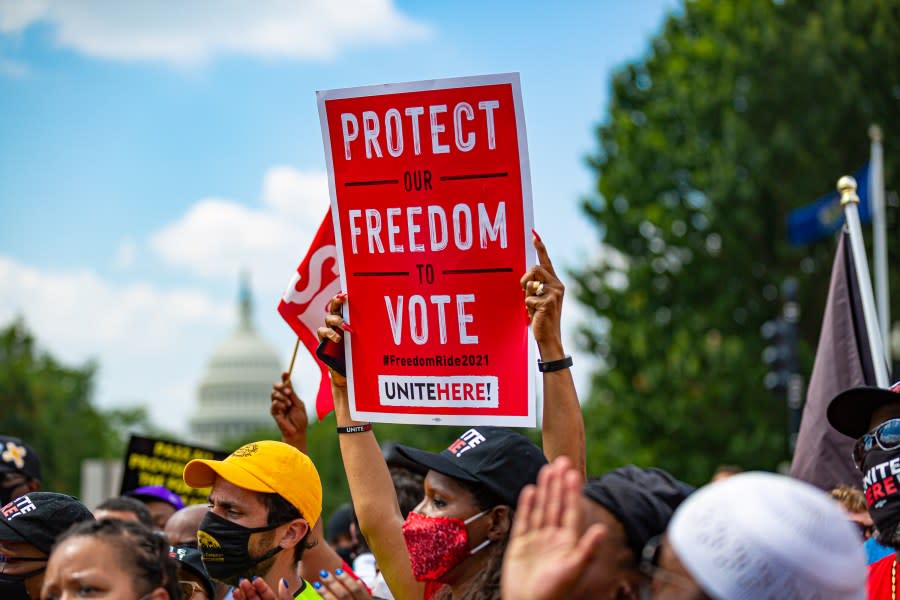
What’s more, after the 2020 U.S. Census, the once-every-decade population counts that determine the apportionment of congressional districts, Republican state legislators have also been accused of racial gerrymandering in an effort to reduce the voting power of Black Americans.
Svante Myrick, president and CEO of the liberal advocacy group People For the American Way, told theGrio that if the current state of voting rights remains in years to come, young people and future voters “will have fewer rights” than previous generations.
“It’s up to us to march again. It’s up to us to register as many people as we can. It’s up to us to pick up that banner and carry that fight forward to the next generation,” said Myrick, the former mayor of Ithaca, New York. “Because if we don’t, we will have not only failed Dr. King, his legacy, and the legacy of all the civil rights leaders, but we will be failing our children.”
As the nation commemorates the 58th anniversary of the VRA, Albright said Americans, particularly Black and brown voters, have to be mindful of the “ominous threats that are facing us” and that the moment should be seen as a “rallying cry.”
“We’ve got to use this as not just a looking back, but as a launch pad to move forward in terms of continuing to demand our voting rights,” Albright said.
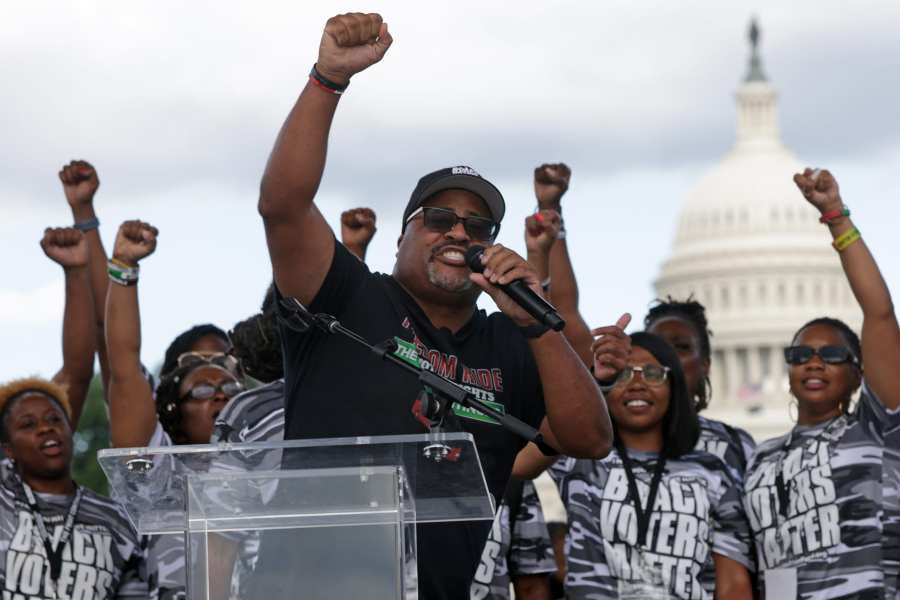
Activists have been calling on Congress to pass the John R. Lewis Voting Rights Advancement Act and the Freedom to Vote Act to restore elements of the VRA and expand voter protections on the federal level. Despite passing both bills in the House during the 117th Congress, the legislation died in the Senate, where Democrats lacked the numbers to overcome Republicans’ argument that such reform is not needed.
No matter the political realities, activists say they, along with voters and allies in Congress, must continue to push for these pieces of voting rights legislation.
Last month, Senate Democrats reintroduced the Freedom to Vote Act. Sen. Raphael Warnock of Georgia told theGrio that the wave of restrictive voting laws was “democracy in reverse.”
“I believe in democracy, and I’m going to keep fighting for it,” he added.
Activists point out that the fight for voting rights is also connected to other current threats to freedoms for Black Americans, including efforts to alter the way American history and Black history are taught in classrooms, and the banning of diversity programs.
“Now, you’ve got people suing and trying to block affirmative action programs,” said Melanie Campbell, president of the National Coalition for Black Civic Participation, referring to the Supreme Court decision earlier this summer that outlawed affirmative action programs at Harvard College and the University of North Carolina.
“You’ve got so many rights and freedoms that have been rolled back,” Campbell said. “It’s a reminder that the power of the ballot is something that we have to continue to fight for because it is an equalizer.”
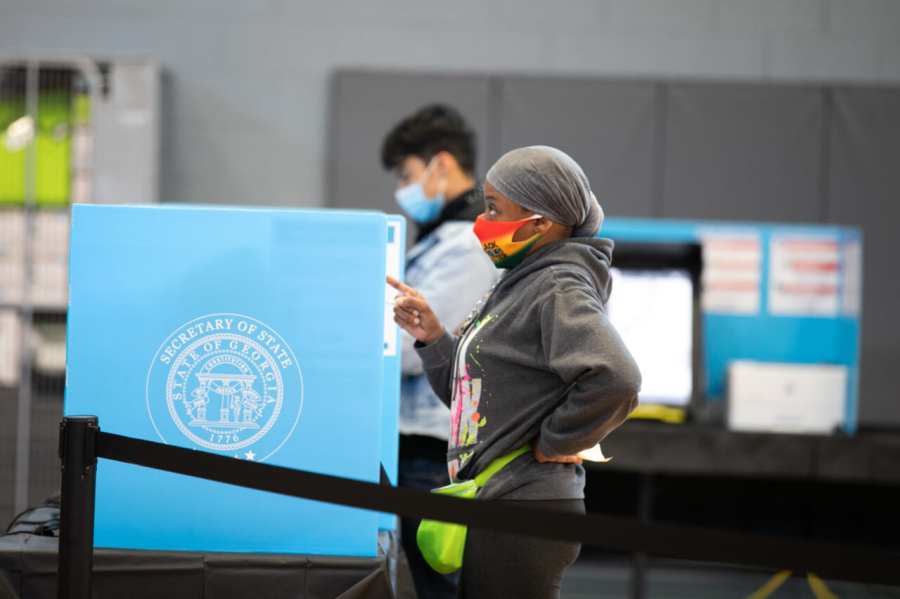
Myrick of People For the American Way noted that civil rights leaders of the 1960s understood very clearly that achieving voting rights was a bridge to acquiring other freedoms historically denied to Black Americans, like quality education and economic opportunity.
“They knew that there was a whole host of things that the Black community wanted and needed,” Myrick said. “They knew that the key to all of those problems was making sure that Black Americans had the right to vote.”
As the 2024 election cycle picks up, activists and elected officials say voters, especially Black voters, will be crucial to stopping legislators from placing further restrictions on the right to vote and other civil rights. The anniversary of the Voting Rights Act is a reminder of that charge and what’s at stake.
“It’s a dire warning of where we’re at…and what we need to do,” Albright said.
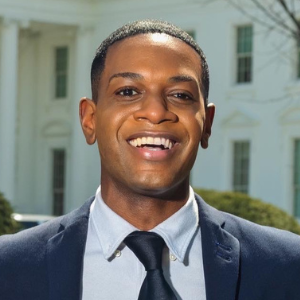
Gerren Keith Gaynor is a White House Correspondent and the Managing Editor of Politics at theGrio. He is based in Washington, D.C.
TheGrio is FREE on your TV via Apple TV, Amazon Fire, Roku and Android TV. Also, please download theGrio mobile apps today!
The post Voting rights face more threats today than Jim Crow era, advocate says appeared first on TheGrio.
